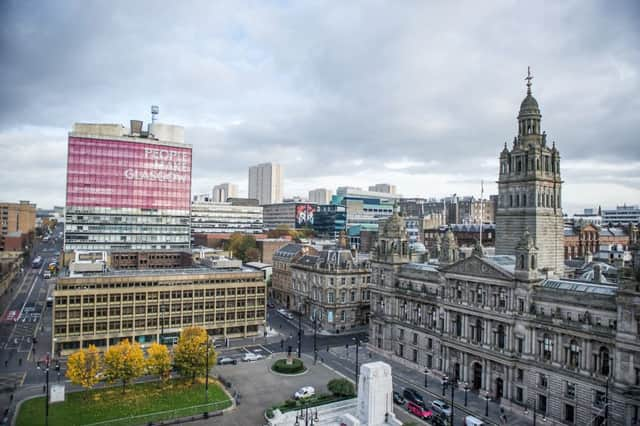SNP confident of ending Labour's 40 year rule in Glasgow


Forty years ago, Labour could blame its loss on a local housing scandal. Allegations that councillors had allocated prime properties to family members dominated front pages in the weeks before the vote. The Conservatives were the main beneficiaries and Labour was out of power until 1980. This time it’s the SNP who are predicted to be the big winners.
The Nationalists currently have 30 of the city’s 79 councillors. They need 10 more for a majority that would allow them to take power at the ornate City Chambers in George Square for the first time.
Advertisement
Hide AdAdvertisement
Hide AdThe SNP also have momentum. The party has won the last six council by-elections, as well as claiming every city constituency at the 2015 Westminster and 2016 Holyrood elections.
But memories of the last council vote in 2012 – when Labour retained its majority against most expectations – ensure party activists cannot be complacent.
“Labour confounded the critics then,” council leader Frank McAveety told The Scotsman. “What the people of Glasgow want is someone to stand up for the city. The city is facing in the right direction. I’m confident we can take this fight on.”
Since voters last cast their ballots at local authority elections five years ago, political discourse in Scotland has become centred on the constitution. Activists across all parties say issues relating to Brexit and a potential second referendum on Scottish independence are being mentioned on doorsteps more often than local matters such as schools or housing.
But McAveety, who was first elected to the former Glasgow district council in 1988, insists this election should be about “who is best to run Glasgow”.
“My basic message to the people of Glasgow is: if you want a plan for schools, a plan for housing, a plan for the economy; we’ve got it,” he added.
“If you want someone to plan for independence, let them deal with it. But I think Glaswegians are much cleverer than that.”
The leader of the SNP group in the city – and thus favourite to become the next leader of the council – is Susan Aitken.
Advertisement
Hide AdAdvertisement
Hide Ad“We are taking absolutely nothing for granted, even though the polls are very much in our favour,” she said.
“But we are aiming to win and win with a majority.”
Aitken, who was first elected in 2012, admits Brexit and independence remain big talking points among voters.
“These are elections taking place across a backdrop of other political issues – no matter how much I would like it to just be about Glasgow City Council,” she added.
“Although our group has grown, and we have won by-elections, on the day of the vote there will be other factors to take into account.”
Regardless, Aitken believes a desire for change will be a crucial.
“Glasgow Labour is all the problems with the Labour Party, but magnified,” she said.
“We want to let the light in on how things are done in the city council.
“Rightly or wrongly, people in the city have a perception that there is a murkiness in the way things are done here.
“That’s no basis for engagement. We have to change that.”